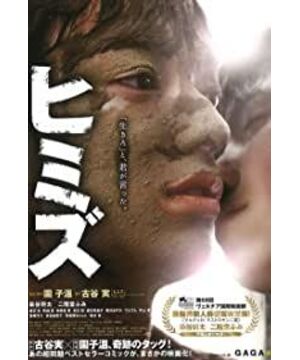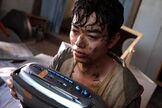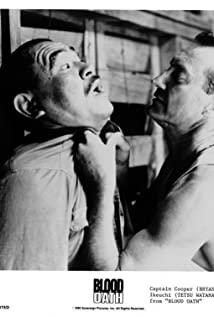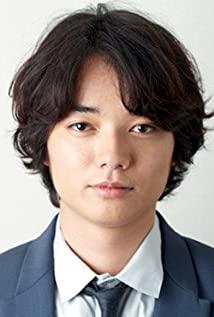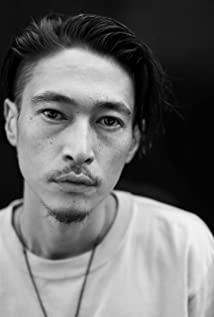On March 11, 2011, the Great Earthquake in Japan.
In late May of the same year, "Mediocre Talents" directed by Sono Ziwen, a ghost poet and director, was officially launched in the disaster-stricken area near Ishinomaki City, Miyagi Prefecture.
Weiyon's poems and the girl's recitations are accompanied by music. From this, the story unfolds. Along with ruins, rubble, and falling rocks, the silent film-style long shots are clear in black and white, from far to near. These are the real scars of Japan, I believe.
Undoubtedly, this is the film with the lowest blood concentration of Yuan Ziwen. The main plot of the film tells the story of a junior high school student who yearns for the ordinary but is unfortunate. His father was abusive and alcoholic. He owed gambling debts outside the home all the year round and lived by asking for money from his family. His mother ran a bleak rental boat house and had relationships with unattractive lovers, and did not care about her son's life. His greatest wish is to inherit his mother's houseboat safely and steadily in the future, and then live an ordinary life. However, after experiencing his mother's "running away for love" and his father's huge loan sharks, the kind-hearted boy who endured under his father's fist finally broke out hysterically. After accidentally killing his father, the young Sumita collapsed in his heart and embarked on the road of self-destruction.
Every character in the film is remarkable. Sumita, the protagonist, yearns to "live like a mole", while the teacher broadcasts the latest nuclear radiation data, while vigorously inciting emotions, encouraging everyone over and over again "Each of us is special, we When everyone is a unique flower in the world", he can shout "Long live the ordinary" to refute the teacher; indifferent and less talkative, he is in a state of indifference without fighting spirit all day long, his highest goal is to run a small houseboat, Just to make ends meet. And the heroine Jingzi, as the only person who appreciates Sumita, she takes care of herself and forcibly intervenes in Sumita's life, records every quote that Sumita says, and helps him manage the business of chartering boats. After learning of his manslaughter accident, he was also a key figure in persuading him to surrender and "help him make the right decision". The girls and teenagers who also live in the shadow of an abnormal family, cling to each other in the cold and ruthless reality, relying on each other to obtain the last bit of warmth and redemption in the world. And a sad old man who lost everything in the earthquake. He is a disaster victim living in Sumita's house. He regards Sumita as his most important friend. For his father's usury, at all costs, even stealing, murder.
After Sumita killed his own father, the director skillfully used paint to mark the beginning of the boy's self-destruction. Accompanied by the reciprocating melody, his face, clothes, and even his tongue were smeared with oil paint on Suida's expressionless face, like a zombie. After recording "every day from now on will be an extra life for me, I will use this free time to do something useful for the society", carrying a paper bag with a kitchen knife, he walked on the street, He intends to kill what he considers a social scum to end his life.
There are many meaningful scenes in the film. The victims who lost their homes often looked at the half-submerged houses in the river and cried bitterly, and became homeless because of the earthquake; the mother who made the gallows for her daughter decorated the torture instruments with festive lights and red paint; The young man in the car who refused to let the seat of the car stab the pregnant woman with a knife, his almost fanatical and paranoid expression made people tremble; the teacher who pretended to be sensational and exaggerated, the woman who was abused, and the rioters who dangled in the streets. And what impressed me the most was the last scene of the film. Dawn is approaching, Sumita stood in the water, raised his gun to count the days, and executed a suicide of the past, which can also be said to be a farewell to the past self. The teenager completed the reconstruction of the ruins of the self after the disaster of life. On the way to the police station, he and Jingzi shouted "Come on, Sumita!" loudly and repeatedly. The music gradually became louder, and the emotions of forbearance gradually gathered together with the rising scale. In the dark depression finally revealed a little gleam of the future. The devastated ruins finally ushered in the dawn.
When watching "Mediocre", I couldn't help but superimpose the images of Sumita, the protagonist played by Someya Shota, and the boy in "Disqualification in the World". They both lost faith and enthusiasm for life, and used self-imposed exile and destruction. As the ultimate value of existence, they are equally silent and expressionless, they prematurely understand the decline of life, wandering and lost. However, their final choices are completely different. One is to die toward life (Ye Zang), commit suicide time and time again, self-denial and self-exile, sink in the escape from reality and finally lose the qualifications to be human; the other is to live toward death ( Yuichi Sumida), after rebirth, he chose to face it to complete the atonement and salvation of himself. As Schopenhauer said: "They were not sentenced to death, but to live." Living is always a more difficult choice than death.
In addition, the soundtrack is also a highlight of the film, Mozart's Requiem - Day of Pain (if I heard correctly) runs through the entire film, resonating in a deep symphony, looping back and forth melody, brewing every climax The ups and downs and emotional eruptions, I have to say, complement each other. Requiem is a consolation for all the misfortunes experienced by the protagonist, and it must also be a silent mourning for the real disaster.
Just want to live a normal life.
Only the humble and insignificant desire can deeply arouse the compassion of everyone, and the evil of human nature can be disintegrated and redeemed at the most fundamental level. We have made up too many beautiful and ethereal illusions, empty and tender veils of love, but the cruelty of reality has poked them into dazzling holes, with boiling tears and absurdity, into the so-called paradise.
I have never believed that the so-called chicken soup for the soul can bring people much encouragement and comfort. Only unhappiness, and only unhappiness can cure unhappiness. The so-called great truth is told by people who follow it to people in adversity. So how many components are there in order to comfort people who are struggling in pain, or to express the feelings that must be expressed as a person in a prosperous situation to express thoughtfulness and concern? No one can empathize with the pain of others, even if it is someone we love or someone who loves us, we can only be considerate, eager to unload the burden on each other's shoulders, but unable to put ourselves in their shoes and understand. Therefore, suffering can only be resolved by comparison. It is true that we should preach love and beauty, and we should be obsessed with understanding the positive side of life. But life is not a sunny day without rain. I just think that a heart that is force-fed by good things cannot be strong enough to face all the censures of life. All pretty words are mostly useless in the face of real pain. In most cases, we can only find resonance in pain, find the fulcrum of life in malice, to brew, balance, and digest the unwillingness, resentment, and shadow hidden in each of us. .
Japanese movies always express this kind of implicit emotion and pain in a particularly depressing way. No matter whether the ending is bright or not, every time we watch it, there is an indescribable sense of relief. We are always learning the warmth and cruelty of reality. Sexual growth, enlightenment and comfort in the misfortune of others. After all, it is a movie. We watch it and feel depressed and sad. When we close the screen, our life will suddenly feel much better. No matter what, it is not as difficult as the misfortune in the movie, isn't it?
After the earthquake, Japan rebuilds its homeland from the ruins, and in the film, it completes the reconstruction of itself after the hardships of life. Sono Ziwen played the cruel youth story card well. It was just a few months after the earthquake that all the victims of the disaster in Japan experienced the most painful time.
Finally, I attach a short poem that surprised me at the beginning of the film, from the French bard François Villon
I know it, flies fall into the milk, black and white at a glance; I know it, I know it.
I know that I know my identity by the way I dress; I also know that the
weather is good or bad, I know that; I know that I can recognize an
apple when I see an apple tree;
Everything is clear to me, except myself.
All in all, I know it all.
There is a big difference between a healthy face and a pale face, and I know it;
death brings an end to all things, and everything is clear to the heart, except itself.
View more about Themis reviews


